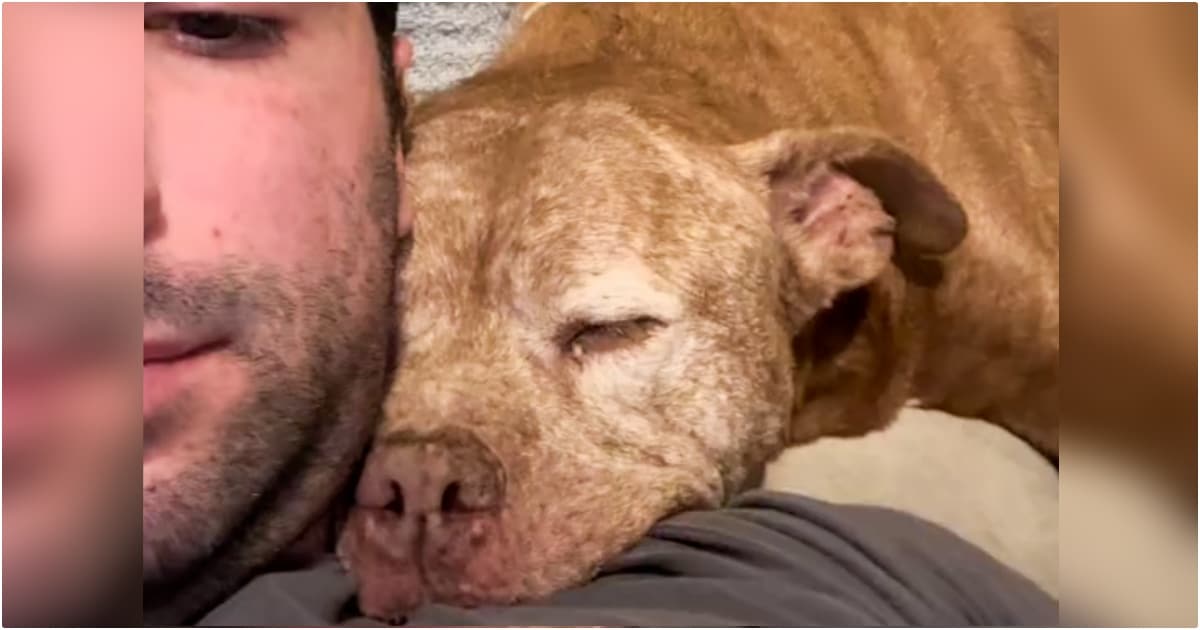
Dengue, a mosquito-borne virus, resurged globally after the COVID-19 pandemic.
The U.S. this year faces a higher risk of dengue, a viral infection carried by mosquitoes with no approved antiviral treatment, the Centers for Disease Control and Prevention announced this week in a warning to health care providers and the public.
“Global incidence of dengue in 2024 has been the highest on record for this calendar year,” the CDC said in its health advisory. “In 2024, countries in the Americas have reported a record-breaking number of dengue cases, exceeding the highest number ever recorded in a single year.”

Dengue resurged globally after the COVID-19 pandemic, according to the CDC. In 2023, more than 4.6 million cases and 4,000 deaths were reported in the Americas. In the first roughly six months of 2024, more than 9.7 million dengue cases have been reported in the Americas – more than twice last year’s total.
The agency advised health care providers to “have increased suspicion of dengue among people with fever who have been in areas with frequent or continuous dengue transmission” in the two weeks before sickness.
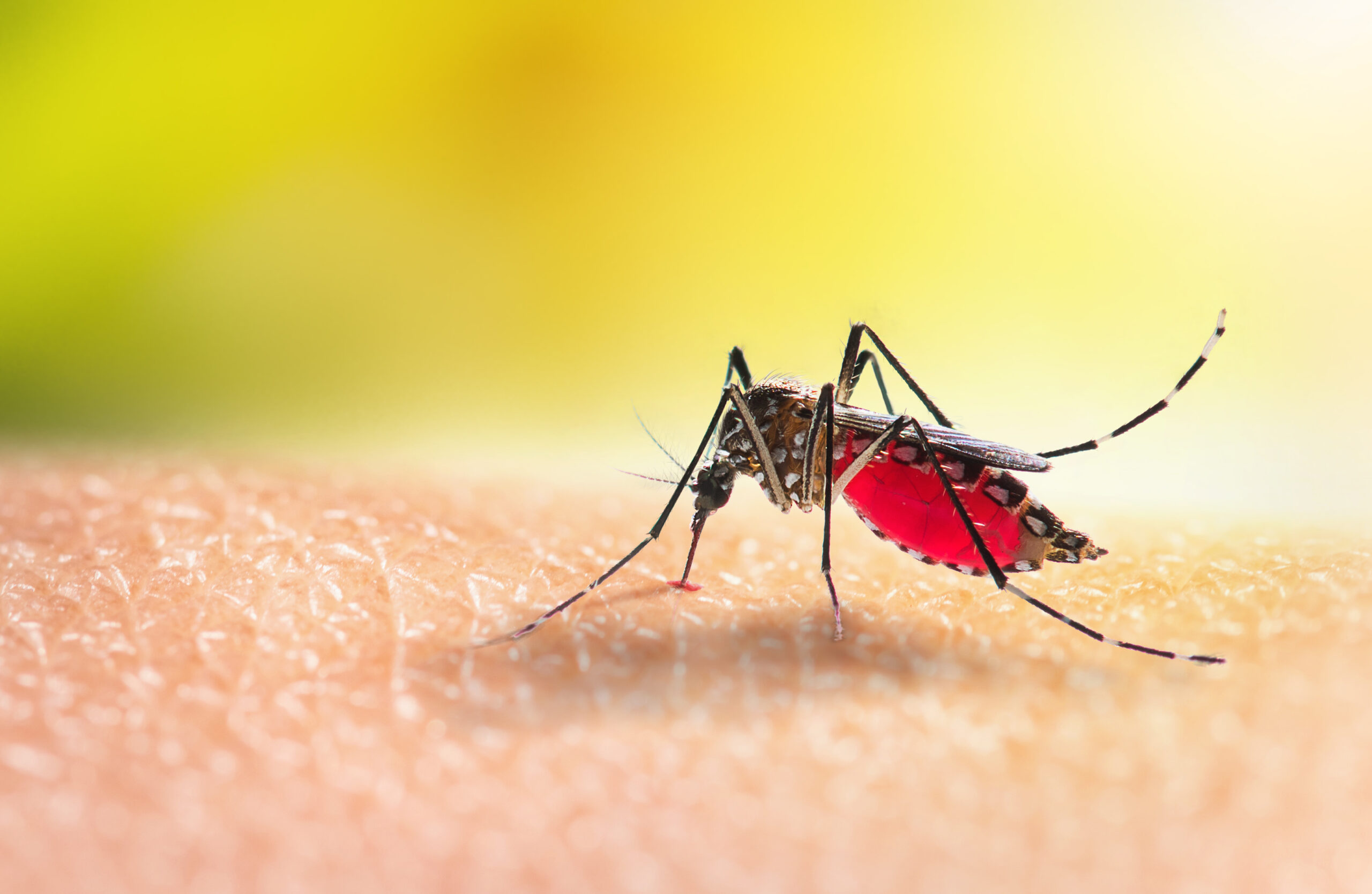
What Is Dengue?
Dengue viruses are mainly spread through the bite of an infected mosquito. They do not spread from person to person.
Most dengue cases in the U.S. are in travelers who were infected elsewhere.
“U.S. summer travel often overlaps with the months of increased dengue activity in many countries,” the CDC said.
However, some local transmission does happen in the U.S. Limited local spread of dengue has previously been reported in Florida, Hawaii, Texas, Arizona and California. Eight local cases have been reported in Florida so far this year. The CDC said the risk of widespread dengue transmission in the continental U.S. is low.
But six U.S. territories and freely associated states are classified as areas with frequent or continuous dengue transmission, including Puerto Rico, American Samoa and the U.S. Virgin Islands. Puerto Rico has reported nearly 1,500 cases this year and declared a public health emergency due to dengue.
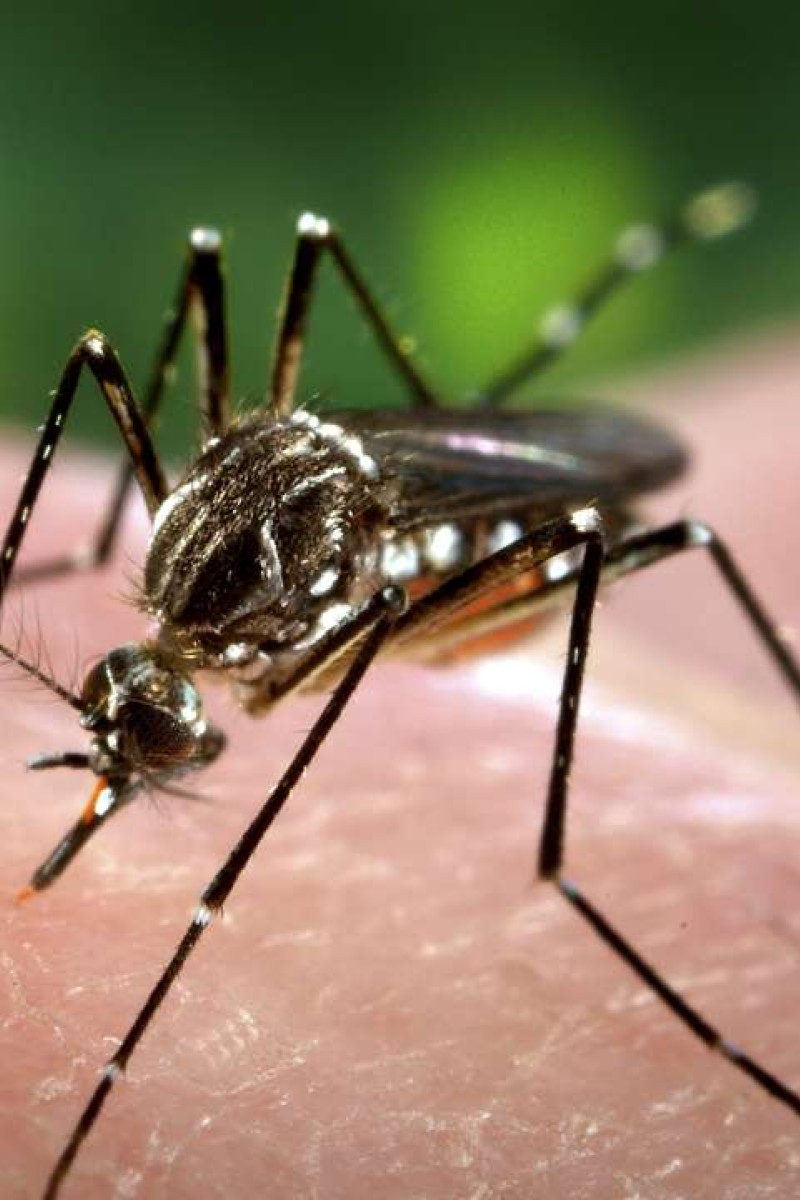
Why Is Dengue Resurging?
Dengue transmission often peaks during the warmer and wetter months in many tropical and subtropical regions.
A warming world due to climate change is expected to bring a wider spread of the mosquitos that carry dengue, according to the CDC.
“Dengue cases are likely to increase as global temperatures increase,” the CDC said. “Higher temperatures can expand the range of the mosquitoes that spread dengue, as well as affect other factors that facilitate virus transmission like faster viral amplification in the mosquito, increased vector survival and changes in reproduction and biting rates.”
The best way to prevent dengue is to avoid mosquito bites. The CDC advises using insect repellent and wearing loose-fitting, long clothing.
What Are the Symptoms of Dengue?
Dengue symptoms start within two weeks of a bite from an infected mosquito. They usually last two to seven days.
About 1 in 4 people infected with dengue will have symptoms. Most people will recover after about a week, according to the CDC. There are no antiviral medications approved to treat dengue.
For those who do get symptoms, they can range from mild to severe. Symptoms include a fever accompanied by any of the following:
- Eye pain
- Muscle pain
- Bone pain
- Joint pain
- Headache
- Nausea/vomiting
- Rash

How Dangerous is Dengue?
About 1 in 20 people who get sick with dengue will develop a severe case, according to the CDC.
Severe dengue is a medical emergency with symptoms that can begin within a few hours of infection. Severe dengue can cause shock, internal bleeding and death.
The CDC advises anyone go to a local clinic or emergency room if they experience:
- Belly pain or tenderness
- Vomiting (at least three times in 24 hours)
- Bleeding from the nose or gums
- Vomiting blood or blood in stool
- Feeling extremely tired or restless
CDC warns a surge in global dengue cases is raising risk in US
The US Centers for Disease Control and Prevention issued a warning to doctors on Tuesday to be on the look out for cases of dengue. A surge in dengue cases globally is raising the risk that people could catch the disease in the US.
The number of people who develop the mosquito-borne disease has been increasing globally as the world’s climate warms due to the human-made climate crisis. The infected mosquitos that spread the disease, the Aedes aegypti, and sometimes Aedes albopictus, mosquitoes like warmer and wetter weather.
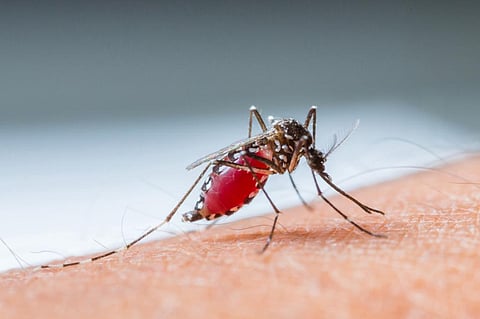
Generally, dengue had been relatively rare in the continental US with most people getting sick after having traveled to popular destinations overseas where the disease is more common. So far this year, a higher-than-expected number of dengue cases have been identified among US travelers, with 745 cases in records kept through June 24, the CDC said.
In 2023, 1,829 travel-associated cases were reported by US travelers, the highest number of travel-associated cases since dengue became reportable in the US in 2010, according to the CDC. Twenty-three countries reported outbreaks last year with more than 5 million cases reported to the World Health Organization and 4,000 deaths in the Americas alone.
Over the years there have been a handful of outbreaks in locally-transmitted cases in states with warmer climates and habitat friendly to the kind of mosquito that spread dengue like Florida, Texas, Hawaii and Arizona. California reported its first locally transmitted case in Pasadena last year.
Tuesday’s warning from the CDC says that the number of global infections in 2024 have been the highest on record. Cases in the Americas have already exceeded the highest number ever recorded in a single year, with more than 9.7 million people getting sick with dengue; that’s twice as many cases in all of 2023.
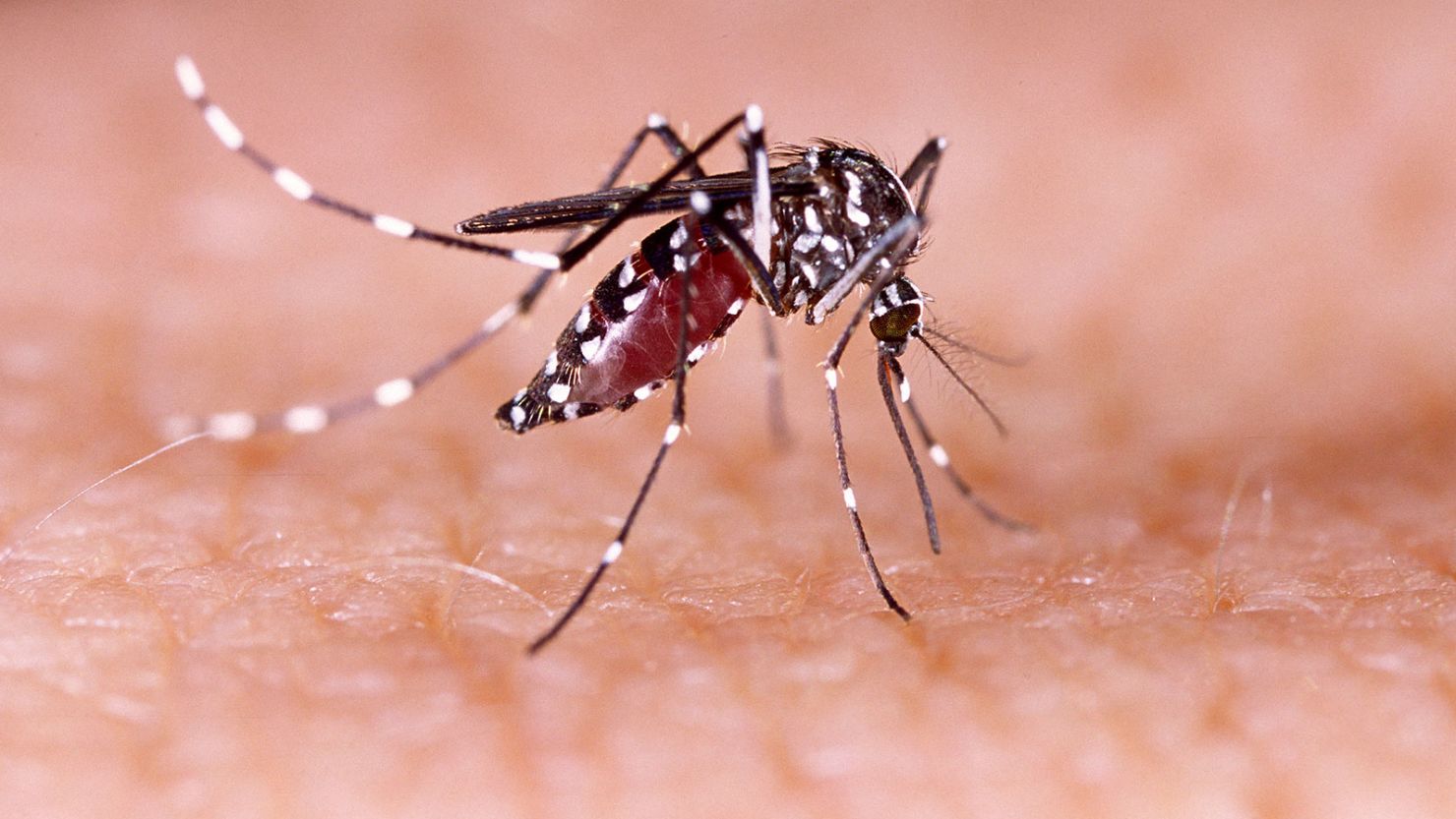
So many people have gotten sick with dengue in Puerto Rico, local public health officials declared a public health emergency. Other areas with frequent dengue transmission associated with the US include American Samoa, the US Virgin Islands, the Federated States of Micronesia, the Republic of Marshall Islands and the Republic of Palau.
The CDC warning instructs doctors to test patients with symptoms that look like dengue, especially those patients who have traveled to a part of the world where the disease is more common.
Symptoms typically start about a week after the person has been bitten by the infected mosquito, although 40 to 80% of infections are asymptomatic, according to the Infectious Disease Society of America (IDSA).
Symptoms of dengue can include a fever, vomiting, muscle aches, joint and bone pain, pain behind the eyes, headache, nausea, low white blood cell counts and a fever. Most people recover after about a week.
The CDC said warning signs that the dengue is progressing to a more serious form of the disease include persistent vomiting, fluid accumulation, bleeding from the nose or gums, liver enlargement, being tired and abdominal pain.
Severe disease can bring with it severe bleeding, respiratory distress, and a person’s organs can start shutting down and people can die. Mortality can be as high as 13% in untreated patients, the IDSA said.
https://www.youtube.com/watch?v=6RLxqyjmYa8
Infants, pregnant people and the elderly are at an increased risk for severe dengue, along with people who have certain underlying medical conditions.
Other than supportive care including treatment with fluids and rest, there are no specific medicines to treat dengue.
There is no dengue vaccine recommended for travelers or for adults. There was a vaccine, Dengvaxia, but Sanofi Pasteur stopped making it citing a lack of demand. The public health departments in Puerto Rico will still be giving the shots to children aged 9 to 16 years with a lab-confirmed case who live in areas with frequent transmission until the doses expire in 2026.
In April of this year the CDC had launched an emergency response that addresses the increasing dengue caseload in the US. It also expanded lab capacity and is working with local leaders to strengthen surveillance for the disease.
To prevent dengue, use bug spray when outside, particularly when traveling to parts of the world where dengue is common. Wear loose-fitting and long-sleeved shirts and pants. Run the air conditioning or use window screens so mosquitos stay outside.
https://www.youtube.com/watch?v=6RSrJeEHuK4































